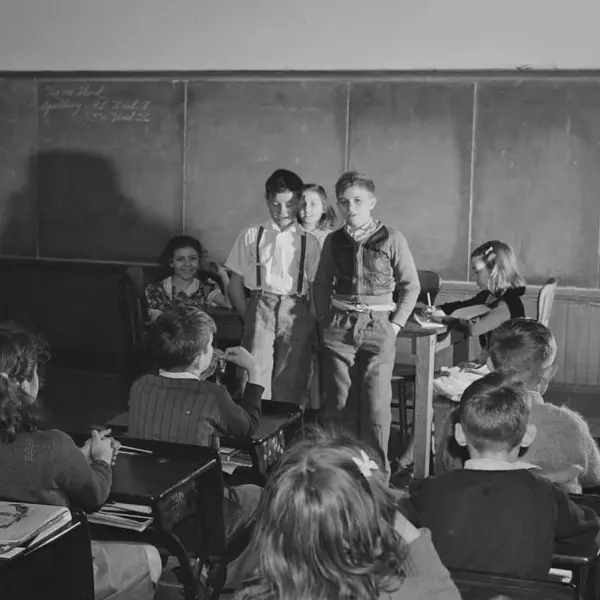Booker T Washington portrait
circa 1876
After the Civil War, Washington, like many African Americans, faced significant challenges, but he was determined to pursue an education. He attended the Hampton Normal and Agricultural Institute in Virginia, a historically Black college that emphasized vocational and practical skills. Washington's experience at Hampton profoundly shaped his educational philosophy, which focused on the value of vocational training as a means of achieving economic independence and social mobility for African Americans.
In 1881, Washington was appointed as the head of the Tuskegee Normal and Industrial Institute in Alabama, a position that he would hold for over 30 years. Under his leadership, Tuskegee grew into a highly regarded institution that provided African Americans with practical training in trades and agriculture, alongside a strong academic curriculum. Washington believed that vocational education would help African Americans gain respect and improve their social standing in a racially divided society.
Washington’s philosophy was encapsulated in his famous "Atlanta Compromise" speech in 1895, where he argued that African Americans should accept segregation and disenfranchisement for the time being while focusing on self-improvement through education and hard work. His ideas were controversial, as some African American leaders, like W.E.B. Du Bois, advocated for immediate civil rights and political equality. However, Washington’s emphasis on economic self-sufficiency and his pragmatic approach to race relations won him support from both white and black communities, as well as philanthropic donors.
Throughout his life, Booker T. Washington was a respected public figure. He wrote several books, including his autobiography, *Up from Slavery* (1901), which became a classic work in African American literature. Washington also advised several U.S. presidents, including Theodore Roosevelt and William Howard Taft, on issues related to race and education.
Though his approach to civil rights was seen as conciliatory by some, Washington’s legacy as a pioneering educator and advocate for African American progress remains an important chapter in American history. His work laid the foundation for future generations of African American leaders and educators who continued the struggle for racial equality and social justice.
Contributed by OldPik on January 7, 2024
Image

Log in














No comment yet, be the first to comment...